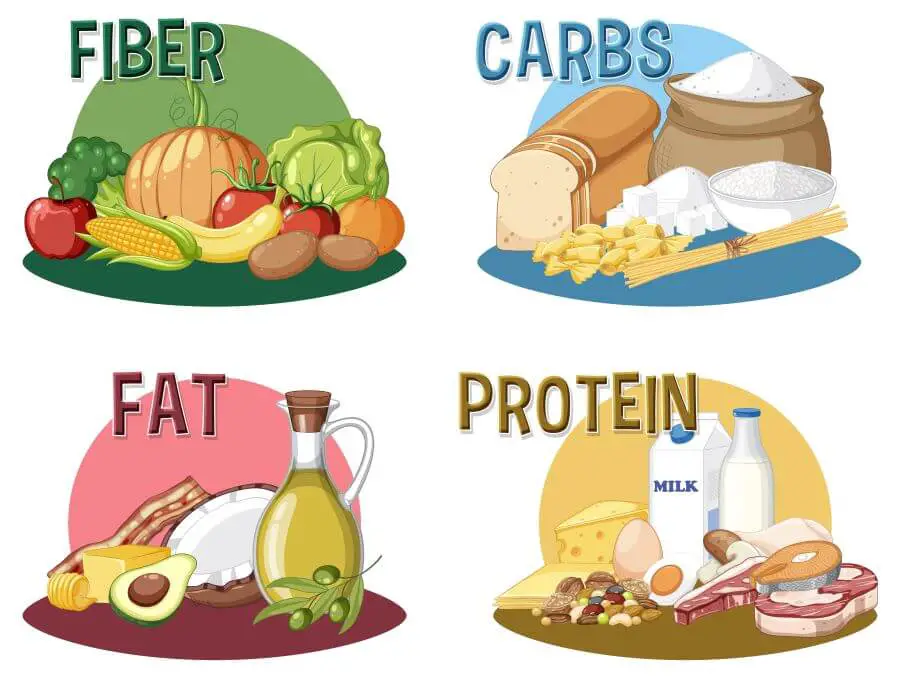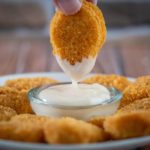The question of whether it is acceptable to eat McDonald’s after a workout has been a subject of debate among fitness enthusiasts and nutrition experts.

In this article, we will explore the role of nutrition in post-workout recovery, evaluate the nutritional profile of McDonald’s food options, discuss the pros and cons of consuming McDonald’s after exercise, and provide expert insights and recommendations on post-workout nutrition.
Understanding Post-Workout Nutrition
The Role of Nutrition in Recovery
Post-workout nutrition is crucial in replenishing energy stores, repairing damaged muscle tissues, and promoting overall recovery. Consuming the right balance of macronutrients is essential to facilitate these processes effectively.
Importance of Post-Workout Nutrition
Proper nutrition after a workout helps optimize muscle growth, reduce muscle soreness, prevent muscle breakdown, and enhance performance for future workouts. The timing and composition of a post-workout meal can significantly impact these outcomes.
Macronutrients and their Impact on Recovery
To understand the appropriateness of McDonald’s as a post-workout option, let’s examine the three primary macronutrients – protein, carbohydrates, and fats – and their roles in recovery.
Balancing Protein, Carbs, and Fats
Protein is essential for muscle repair and growth, while carbohydrates provide the necessary energy to restore glycogen levels. Fats, particularly healthy fats, support various bodily functions. A well-balanced post-workout meal should contain an appropriate ratio of these macronutrients.
Protein should be consumed in sufficient amounts after a workout to aid muscle repair and growth. Optimal protein intake for muscle recovery is typically around 20-30 grams, depending on factors such as body weight and exercise intensity.
Carbohydrates are crucial for replenishing glycogen stores that are depleted during exercise. Consuming carbohydrates after a workout helps restore energy levels and support optimal recovery.
Drinking a combination of complex carbohydrates, such as whole grains, and simple carbohydrates, such as fruits, is recommended to replenish glycogen stores efficiently.
Healthy fats, such as those found in avocados, nuts, and olive oil, play a vital role in hormone production and overall health. Including a moderate amount of healthy fats in your post-workout meal can contribute to a well-rounded nutrition profile.

Evaluating McDonald’s Food Options
Nutritional Profile of McDonald’s Meals
McDonald’s offers a wide range of food options with varying nutritional profiles. Let’s look at the macronutrients provided by some everyday menu items.
Protein-Rich Options
McDonald’s offers protein-rich choices, such as grilled chicken sandwiches, salads, and egg-based breakfast options. These can contribute to muscle recovery and growth.
For example, a grilled chicken sandwich from McDonald’s provides approximately 33 grams of protein, making it a decent post-workout protein source. The protein content can vary depending on the specific product and customization options.
Carb Sources and Fiber Content
Carbohydrates are essential for replenishing glycogen stores. McDonald’s meals often contain carbohydrates from sources like bread, potatoes, and rice. However, it is essential to note that these options may be higher in refined carbohydrates and lower in fiber.
For instance, a medium order of French fries contains around 44 grams of carbohydrates, mostly from refined sources. While this can contribute to glycogen replenishment, it lacks the added benefits of fiber that whole grains and fruits offer.
Fats and Healthy Fats
While some fats are necessary for a balanced diet, McDonald’s food can also contain saturated and trans fats, which should be consumed in moderation. Opting for grilled or baked options over fried items can help reduce the overall fat content.
For example, a Big Mac burger contains approximately 29 grams of fat, with a significant portion of saturated fats. Choosing a grilled chicken sandwich instead can provide a lower-fat alternative while still offering protein for recovery.
Pros and Cons of Eating McDonald’s Post-Workout
Quick Convenience vs. Optimal Nutrition
One advantage of McDonald’s is its convenience – the ability to grab a quick meal after a workout. However, comfort should not overshadow the importance of optimal nutrition for post-workout recovery.
While McDonald’s can be a fast and easily accessible option, it may not provide the same quality and nutrient density as whole, unprocessed foods. Whole food sources are typically richer in vitamins, minerals, and other beneficial compounds that support overall health and recovery.
Impact on Muscle Recovery
Consuming a well-balanced meal with adequate protein and carbohydrates after a workout helps support muscle recovery. While some McDonald’s options provide these nutrients, they may offer different quality and nutrient density than whole, unprocessed foods.
While McDonald’s protein-rich options can contribute to muscle recovery, it’s essential to consider the overall nutritional value of the meal.
Insights and Recommendations
Fitness experts recommend moderation and customization when consuming McDonald’s or fast food after a workout. While there may be better choices than McDonald’s for post-workout nutrition, there are ways to make healthier choices within their menu.
Moderation and Customization
Opt for grilled or baked protein options, such as grilled chicken or egg-based breakfast items, which provide a decent amount of protein for muscle recovery. Avoid fried and heavily processed foods high in unhealthy fats and sodium.
Customize your order by requesting modifications, such as removing sauces and dressings or choosing whole-grain buns instead of white bread. Adding extra vegetables or opting for side salads can increase the nutritional value of your meal.
Whole Food Alternatives
Ideally, it is recommended to prioritize whole, unprocessed foods for post-workout nutrition. Lean protein sources like chicken, turkey, fish, and plant-based options, along with complex carbohydrates from whole grains, fruits, and vegetables, can provide a more nutrient-dense and wholesome opportunity for recovery.

Including various colorful fruits and vegetables in your post-workout meal ensures a good intake of essential vitamins, minerals, and antioxidants. These nutrients support overall health and aid in recovery by reducing inflammation and promoting optimal cellular function.
Hydration and Supplementation
In addition to food, proper hydration is crucial for post-workout recovery. Drinking adequate water helps replenish fluids lost through sweat and supports optimal muscle function. Consider hydrating with water or low-sugar electrolyte beverages rather than sugary sodas or sports drinks.
Supplementation can also play a role in post-workout recovery. Protein powders or shakes made from high-quality sources like whey, casein, or plant-based proteins can provide a convenient and easily digestible source of protein.
Consult with a healthcare professional or registered dietitian to determine the best supplementation strategy for your needs.
Conclusion
While there may be better choices for post-workout nutrition than McDonald’s, making healthier choices within their menu is possible.
Balancing macronutrients, choosing lean protein options, opting for whole-grain alternatives, and customizing your order can help improve the nutritional profile of a McDonald’s meal.
However, it is essential to remember that whole, unprocessed foods should be prioritized for post-workout recovery due to their higher nutrient density and overall health benefits.
Consulting with a registered dietitian or nutrition expert can provide personalized recommendations tailored to your fitness goals and dietary needs.






